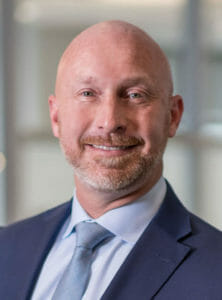
Long-term care facilities have always operated on razor-thin margins — then came the pandemic.
The virus ripped through nursing and assisted living facilities. Families tragically lost loved ones and those who survived were forced to live in isolation for their safety, unable to have regular visits with children, grandchildren and friends. The emotional scar is still raw today, as the virus persists.
Because of this, many elderly people have delayed entering a facility, causing lower occupancy rates and thus tightening an already financially dire situation.
Lower occupancy rates coupled with historic staffing shortages have compounded care quality concerns. Now with inflation, everything is more expensive, and facilities will require significant recapitalization to upgrade internal space for better infection control.
According to the American Health Care Association / National Center for Assisted Living, more than 300 nursing homes have closed since the pandemic began, with an additional 400 projected to shutter this year. And with the federal government’s COVID emergency funding set to expire in July, the situation will only get worse.
While there is no one-size-fits-all solution, there are key steps operators can take to run a financially “healthy” business.
1. Hire a strong management team
Caring for patients and providing thorough medical advice are very different skills than the savvy business know-how needed to successfully run a company. Innovative and engaging leadership is critical in the face of unprecedented challenges in long-term care. Administrators should apply their analytical skills to address these challenges and create safe and healthy environments. Hire a CFO with proven results-driven performance. Identify administrators who are high performing and are invested in the long-term “health” of the facility.
2. Know your financial options
If your facility has balance sheet issues, your business is at a standstill. You won’t have the capital to pay bills or make payroll for your staff. Understanding your financial options sooner rather than later can help avoid financial messiness down the road. Should you refinance? Can you work with a bank to ensure you have credit options? What are alternative financial solutions if a bank denies your loan request? And while bankruptcy has long been considered a taboo topic, sometimes it’s the right move.
Don’t know what the best option might be? Providers should consider engaging a company that specializes in financial advice and investment banking to help navigate all options and optimize the financial health of their organization. Hiring financial experts to assess and address financial challenges will shift the burden of these fiscal responsibilities allowing the administration to focus on their top priority — the management of the facility.
3. Have a go-forward strategy
Once a business is stabilized, it’s essential to have a go-forward strategy. Is the business positioned correctly to survive future challenges? Are you prepared to increase technology utilization? Is there a strategy to collaborate and potentially partner with other institutions to improve levels of care? What community outreach initiatives is your facility prepared to implement? There are a number of headwinds facing LTC facilities outside of financial challenges that need to be considered.
Hopefully, we’ll never see another pandemic in our lifetimes. However, perhaps, a competitor comes into the picture, and your facility isn’t able to fill beds like before. Or, whether warranted or not, your facility receives detrimental negative reviews online. As businesses (and individuals) know far too well, once information is on the web, it’s impossible to remove. And with care facilities, reputation is everything.
Keeping these suggestions in mind can help LTC facilities remain financially healthy for the long term.
Jim Davis serves as managing director at Chiron Financial, a FINRA-registered, middle-market, global investment banking firm. As a 20-year veteran operator and leader in the hospital and healthcare system, surgery center and physician practice, and academic health sectors, Jim leads Chiron in healthcare transactions. Contact him at [email protected].
The opinions expressed in McKnight’s Long-Term Care News guest submissions are the author’s and are not necessarily those of McKnight’s Long-Term Care News or its editors.





